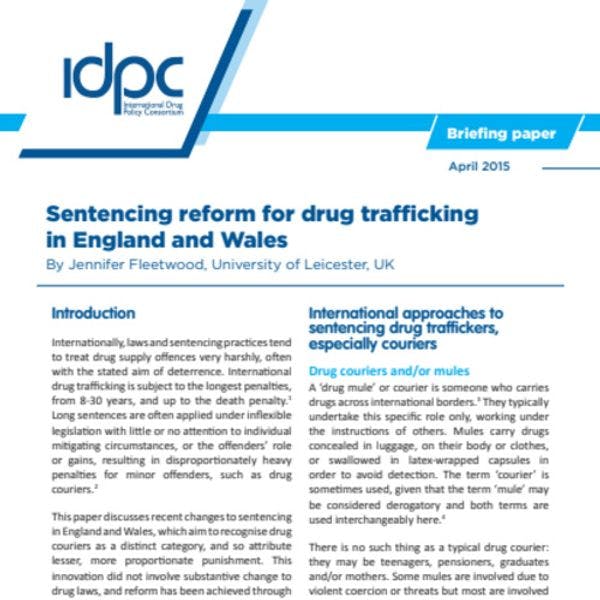Sentencing reform for drug trafficking in England and Wales
Internationally, laws and sentencing practices tend to treat drug supply offences very harshly, often with the stated aim of deterrence. International drug trafficking is subject to the longest penalties, from 8-30 years, and up to the death penalty.Long sentences are often applied under inflexible legislation with little or no attention to individual mitigating circumstances, or the offenders’ role or gains, resulting in disproportionately heavy penalties for minor offenders, such as drug couriers.
This paper discusses recent changes to sentencing in England and Wales, which aim to recognise drug couriers as a distinct category, and so attribute lesser, more proportionate punishment. This innovation did not involve substantive change to drug laws, and reform has been achieved through revising sentencing practice by issuing guidelines for sentencers. This minor reform impacts on one specific group of beneficiaries only: drug couriers.
Sentencing in England and Wales operates according to a complex categorisation of activities and separates possession, different types of selling and production activities, and international trafficking. This sentencing innovation is broadly a step in the right direction in that it will reduce punishments for many, but not all, drug couriers. It suggests that taking role into account offers the possibility of more proportionate sentences for drug couriers.
Keep up-to-date with drug policy developments by subscribing to the IDPC Monthly Alert.
Downloads
Regions
Related Profiles
- International Drug Policy Consortium (IDPC)
